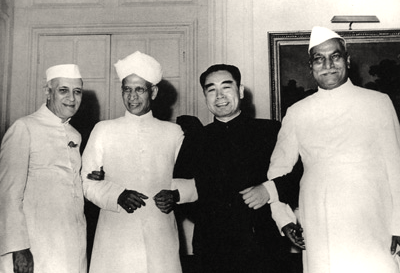By Mewati Sitaram – Mumbai
As this year marks the 70th anniversary of Panchsheel or the Five Principles of Peaceful Coexistence, let us take a look at them. In 1954, Chinese Premier Zhou Enlai visited India. China and India signed the Joint Statement and jointly advocated the Five Principles of Peaceful Coexistence. These principles are fundamental to the foreign policy of the People’s Republic of China. These principles were initially proposed by the Chinese Communist Party and have been recognized and adopted globally. The principles are: Mutual Respect for Sovereignty, Mutual Non-Aggression, Mutual Non-Interference in Internal Affairs, Equality and Mutual Benefit and Peaceful Coexistence.
These principles reflect the Chinese Communist Party’s commitment to peaceful relations and international cooperation. Serving as a guiding framework for China’s foreign policy, they have been adopted by various nations, especially in the developing world, as a means of promoting fair and equitable international relations.
While these principles are widely respected, their implementation has varied. Some nations have faced criticism for not adhering to non-interference and mutual respect for sovereignty, especially in cases of aggressive or coercive behaviour. Critics also argue that China has used these principles to further its own interests rather than a genuine commitment to peaceful coexistence.
Despite these criticisms, the Five Principles of Peaceful Coexistence remain an important framework for promoting international cooperation and peaceful relations. In an increasingly interconnected and interdependent world, these principles are likely to continue shaping the future of international relations.

Editor in Chief : Mewati SItaram











